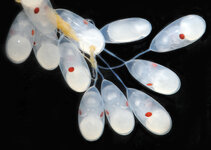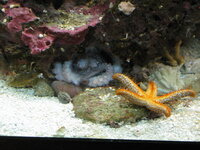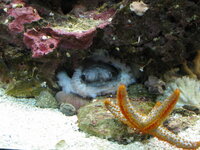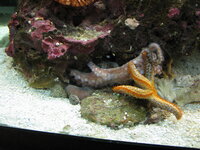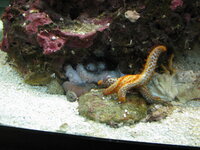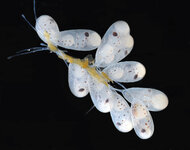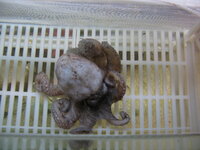Roy,
Do the eggs look round to the naked eye? Maya's definitely look/looked round and not oval. Also, hers are totally opaque.
Do the eggs look round to the naked eye? Maya's definitely look/looked round and not oval. Also, hers are totally opaque.

